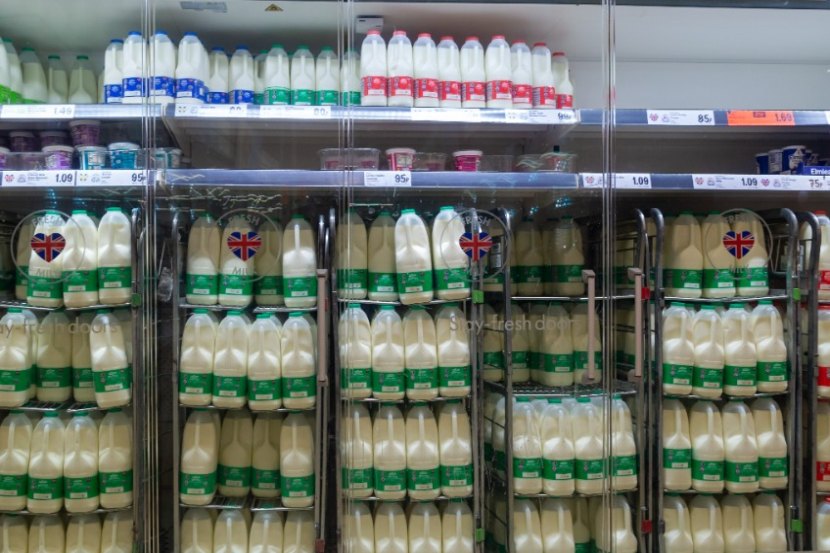
The government must take action to ensure the UK food and agri supply chain is fairer for farmers, a new report by the Oxford Farming Conference (OFC) says.
Fairness, net zero cost-sharing and the recalibration of value-sharing throughout the UK’s food supply chain is needed, the report calls for.
Launched at the 2023 OFC, it looks at the barriers to supply chain transformation, identifying pathways to change, and outlining how both voluntary food sector action, as well as policy, could enable these ambitions.
Crucially, its recommendations come as the food supply chain needs to maintain affordable and available food supplies for families struggling with the cost-of-living crisis.
Meanwhile, inflation is forcing many farmers to cut back on production across all sectors - from meat to eggs and fresh foods.
Lesley Mitchell, author of the report and Forum for the Future's associate director for sustainable nutrition, said the food and farming supply chains were 'central' to meeting the UK’s ambitions for society and economy.
"This report shines a light on the stark reality currently facing farmers, and the huge untapped potential for both the food sector and policymakers to enable an ecologically safe and socially just future for UK food.”
Farmers interviewed highlighted three core themes needed for fair and resilient supply chains in the future, the first is that supply chain relationships need rethinking.
They are concerned that relationships are fraught with unpredictable contracts, failure to cover costs of production, burdensome costs of supply and unjust notice agreements.
They also highlighted the need for relationships that are characterised by reciprocity and shared negotiation, predictability, stability, confidence, and sufficient resourcing to invest and innovate.
Secondly, the report raises the need for a genuine cost sharing of the challenge of transition, including investing in new equipment, adopting new practices, meeting new standards, reporting and verification.
And finally, long-term supply chain reconfiguration is hugely challenging, but essential. The changes needed centre on how value is determined and reflects the true costs of production, environmental and social costs.
Ms Mitchell said: “Shifts over time must recognise the complexity and diversity of business models, as well as full transparency, traceability and harmonisation of standards to give a true picture of the impact and value of food production.
“Within this, deepening consumer engagement to drive demand for environmentally and socially responsible products is part of the transition needed.”
In terms of policy, the report calls for change which, it says, will only be achieved with “ambitious political will for action” on land management, supply chain governance and wider food system transformation.
“Policies like the Agriculture Act (2020) offer the potential to re-orientate payment mechanisms toward desired environmental, as well as supply chain actions that support greater fairness,” Ms Mitchell added.
“However, the Act’s effectiveness will depend on how far the government will pro-actively drive adoption of viable payment mechanisms, codes and adjudication and whether this can meet the rapid timescale of change required.”
What does the report call for?
Five potential policy areas surfaced within the report:
• Integrated political strategy – overarching across food and farming governance, which recognises and prioritises the environmental and social dimensions of food and farming, alongside economics.
• Good food governance – e.g. the Agriculture Act (2020) to provide potential mechanisms to strengthen supply chain transparency and to mandate codes of practice where voluntary action is not sufficient.
• The power of public procurement – national and local government procurement standards are a key signal for demand for new positive environmental and social outcomes, as well as a key component of delivery of our national environmental and climate ambitions.
• Trade agreements - Trading relationships have the potential to open-up new avenues for export. However, if market access is allowed for products with standards lower than those produced within the UK, this could risk damaging ‘home-grown’ food and farming.
• Research, innovation and skills - The shifting landscape of food and farming will require new priorities for innovation, skills and education to deliver the evidence base for change.
